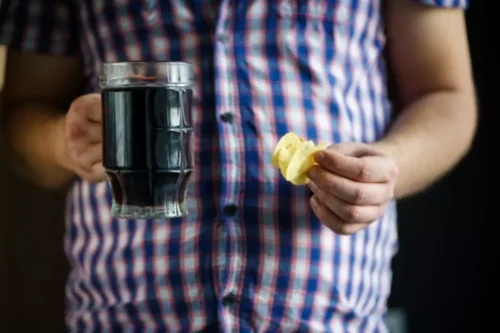
Additionally, you have everyday stresses that do not care that you’re trying to quit drinking, and it all feels like a bit much, especially in the first month of sobriety. A therapist can help you learn new alcoholic rage syndrome coping skills, develop new thinking patterns, and address any co-occurring mental health conditions that may make recovery more difficult. And it’s that regulating behavior tied to emotions that’s such an important step even after becoming physically sober. The finding that people naturally choose to engage with only mildly unpleasant emotions is not surprising.

Cognitive Function
All of these things are important, and you will need to learn how to recognize your feelings of anger. I’ve mentioned the importance of therapy in sobriety before, but I want to talk about it again. There will be days when the feelings are overwhelming like it’s all too much. Your body has acclimated to quitting drinking over the past couple of years. If these emotions become excessive, they can hold you back from recovery.

Identify Your Personal Triggers
Another study explored the relationship between Posttraumatic Stress Disorder (PTSD), alcohol use, and violence (Blakey et al., 2018). This was a massive study of 33,215 individuals with no history of active military combat. There’s no better way to put it — properly addressing alcohol-fueled aggression is crucial for your well-being and relationships. By seeking recovery for problems with alcohol and anger, you can work toward a more positive life. Unfortunately, feeling aggressive from alcohol can stem from more than one variable that’s beyond your control.
Why is anger so common among people who drink?

Interestingly, those in the control group tended to misidentify expressions as happy. Mental rigidity and alcohol consumption have been explored as contributing to domestic violence. One such study included 136 men with a history of intimate partner violence (IPV) (Estruch, 2017). The individuals who had higher mental rigidity had lower empathy and perception of the severity of IPV. Additionally, they reported higher alcohol use and hostile sexism than those lower in mental rigidity.
By understanding how alcohol abuse influences your mood, you can learn to make positive choices instead of ones you may regret. Our state-specific resource guides offer a comprehensive overview of drug and alcohol addiction treatment options available in your area. It is important to note that anger is a normal human response, but it can be warped and misdirected, causing problems for you and those around you. You may fear something or someone, but typically the greater fear is that of losing face, appearing ridiculous, or being abandoned. Likewise, your pain may involve physical pain, but often it includes the emotional pain that results from loss, a feeling of unfairness, or someone else’s words and actions. Understanding the root causes of anger is the first step to addressing them constructively.
- When you heavily consume alcohol, your prefrontal cortex becomes damaged, altering your decision-making capabilities.
- There’s no shame in experiencing anger, in fact it’s often a normal part of the early recovery process.
- This can include a therapist, support groups, or people in your everyday life.
- For this type of anger, meditation and talk therapy can be most useful.
These emotions can become heightened in potentially extreme ways. For example, if you start drinking when you’re lonely and sad, you may find the alcohol makes you feel even more desolate and distressed than you did when you were sober. Behavioral anger is expressed physically and aggressively, often involving breaking objects or assaulting another person. Behavioral anger will make you feel so overwhelmed with emotion that you lash out in rage. The best way to avoid behavioral anger is to remove yourself from the situation and take deep breaths.
John C. Umhau, MD, MPH, CPE is board-certified in addiction medicine and preventative medicine. For over 20 years Dr. Umhau was a senior clinical investigator at the National Institute on Alcohol Abuse and Alcoholism of the National Institutes of Health (NIH). Get the help you need from a therapist near you–a FREE service from Psychology Today. Another way to address anger right away is to use your five senses to help you get out of your head and get grounded in the present moment. This means pausing and intentionally observing the sights, sounds, smells, textures, and tastes of the environment around you. Once you’ve immersed yourself by using your senses, you’ll be more likely to return to the situation with a clear head.
Practice Healthy Living
- One study found that chronic alcohol use decreases the function in the prefrontal cortex, which plays a key role in impulse control.
- Managing anger is a lot like creating a relapse prevention plan.
- If you feel like you have a pattern of being aggressive when drinking alcohol, you should understand how your behavior can impact yourself and others.
- Intoxicated people may feel more outgoing, lonely, joyful — or angry.
- Anger is one of the hardest emotions to deal with in recovery and can often be a factor that leads to relapse if left unchecked.
The best way forward for your recovery from alcohol or substance use is to incorporate a wide variety of strategies that will help foster success. Remember to care for yourself, seek supportive relationships, and consider seeking help from a therapist. Acknowledging and celebrating the hard work of recovery is helpful for keeping you motivated and reminding you why you took this brave step toward sobriety in the first place. Instead, focus on things, experiences, and activities that will support your new, healthy lifestyle. DISCLAIMERThe content of this website is provided for informational purposes only.
IOP Therapy: Is It Really Worth It?

If you are trying to maintain a sober lifestyle, those feelings can become toxic and contribute to relapse if you don’t deal with them properly. The more tools you have for identifying triggers, coping with stress, and managing your new sober life, the easier you’ll prevent relapse. Learning how to deal with emotions in a healthy way is a critical component to achieving positive outcomes when you try to quit drinking.
It then manifests into negative self-talk, self-harm, substance abuse, or eating disorders. For this type of anger, meditation and talk therapy can be most useful. If you are having feelings of self-abusive anger, always reach out for help. This type of anger can be extremely destructive and can easily lead to relapse.

